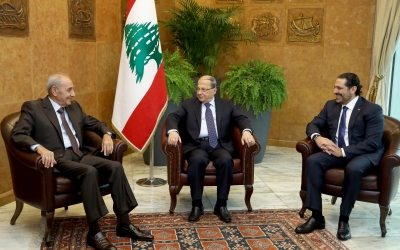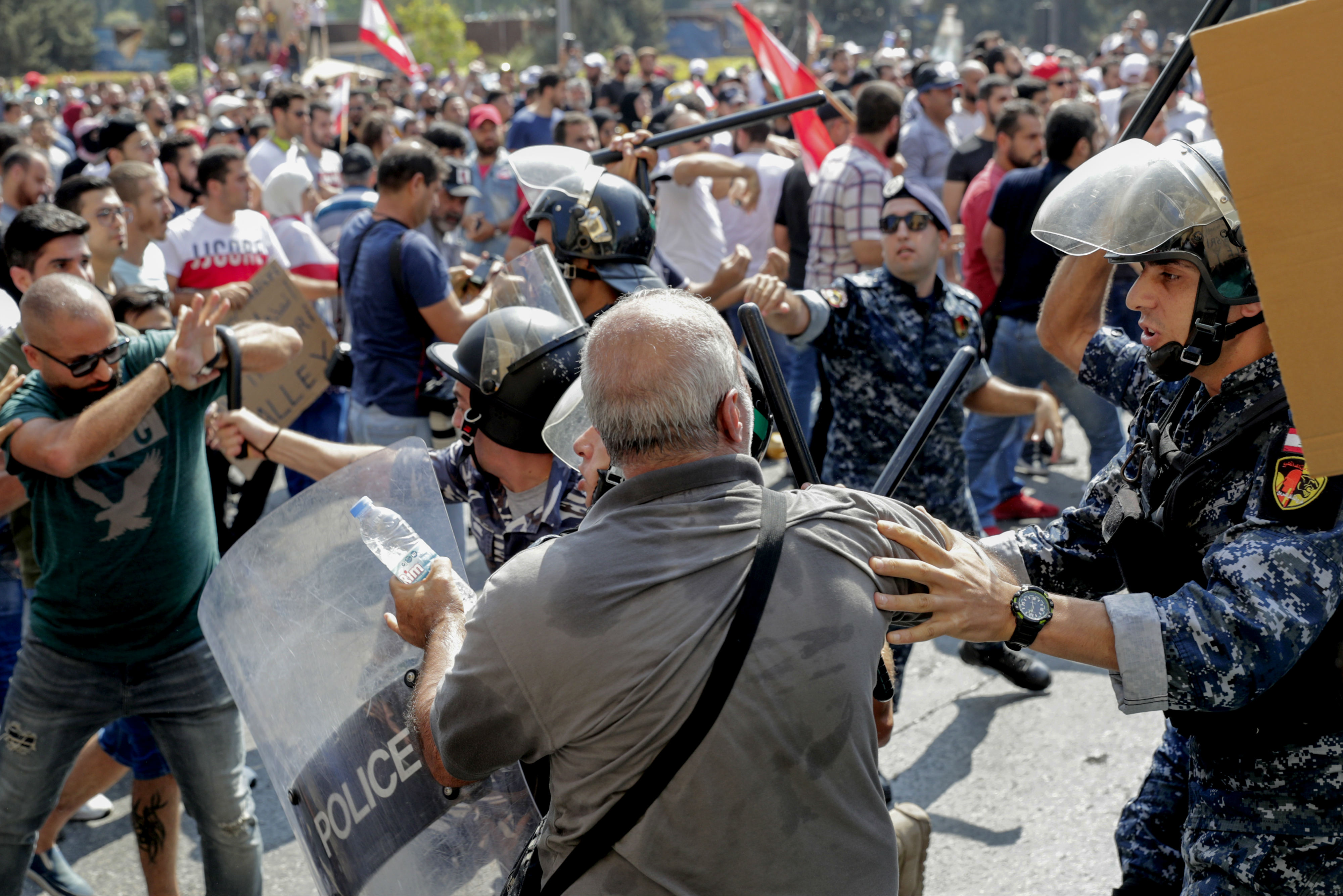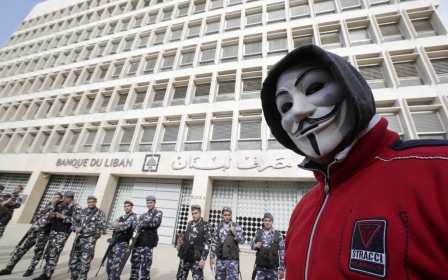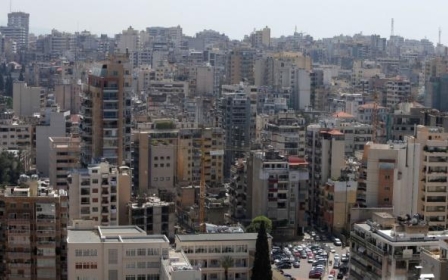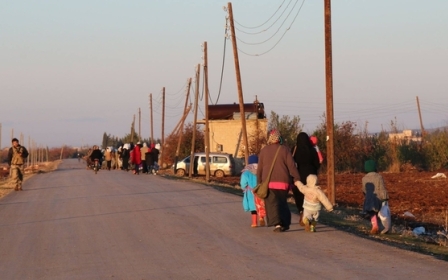Large protests in Beirut against desperate economic situation turn violent
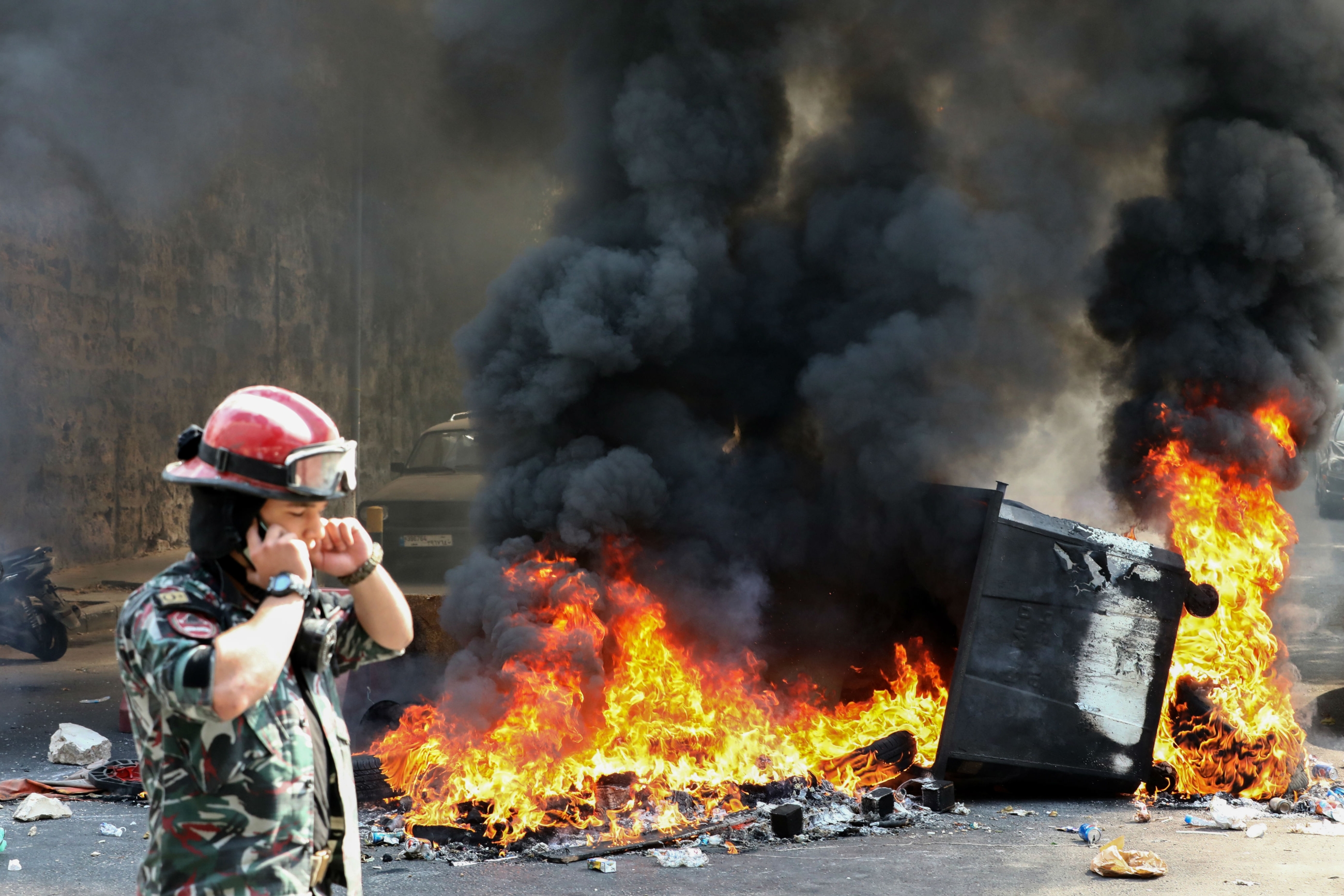
Hundreds of Lebanese protested and blocked roads across Beirut on Sunday, as tensions continue to mount over the country’s worsening economic situation.
Protestors gathered at Martyrs’ Square in the capital’s downtown district calling for “the fall of the regime”.
Some young men at the protest clashed with riot police from the Internal Security Forces, while others tried to stop the confrontations from taking place.
Economic anxiety has worsened, especially in recent weeks, as the Lebanese lira peg to the US dollar has slipped.
'The panic and anger over the lira and the economy has galvanised people into spontaneously organising'
- Hassan, activist
Banks are trying to keep whatever supply of US dollars they have, as Lebanese nationals and residents struggle to withdraw the currency from their bank accounts.
For over 20 years, the Lebanese lira has been pegged to the dollar to prevent hyperinflation and economic collapse following the end of the civil war in 1990.
“They [the government] say nothing is happening,” Valentina, a protestor told Middle East Eye under an assumed name for protection. “But no one believes them.”
The situation escalated after some protestors moved onto a key overpass through central Beirut, blocking roads with dumpsters and burning tires. Police struggled to divert traffic for several hours.
More roadblocks were set up across highways and main roads in and around the city, including the Beirut airport road.
“The panic and anger over the lira and the economy has galvanised people into spontaneously organising …and making their voices heard at parliament,” Hassan, an activist and videographer, told MEE.
Protestors flocked to local journalists to voice their grievances, calling for more job opportunities, social security for the elderly, constant electricity supply and the provision of government services.
Lebanon is moving towards implementing controversial austerity measures on a population already suffering under a moribund economy and dealing with crumbling services.
Most protesters accused the government, including President Michel Aoun and Prime Minister Saad Hariri, of being responsible for their woes.
Others blamed Syrian refugees and other foreign nationals for a shortage of jobs, echoing rhetoric in the public discourse that has prompted concern from human rights groups.
Around a million refugees live in tiny Lebanon, the majority having fled from the neighbouring conflict in Syria, and are restricted from most forms of employment in the country.
Allegations of police brutality
Many allegations of police brutality and wrongful arrests, including of those trying to prevent clashes taking place, emerged from Sunday’s demonstration.
Two middle-aged women told local TV station Al-Jadeed that a 14-year-old boy was attacked. The network later pictured the boy appearing to struggle to breathe.
Video footage of police attacking protestors was shared on social media, including one that showed three police officers beating a man on the floor with batons.
Riot police chased and ambushed protestors in an attempt to clear roads, resulting in a series of standoffs.
Sounds of warning shots and teargas canisters were heard by nearby Lebanese, though MEE could only verify the latter.
Some protesters claimed plain-clothed men belonging to parliament Speaker Nabih Berri’s Amal Movement political party intimidated demonstrators into dissipating.
“At the Bechara al-Khoury road, these big, macho-looking men on motorcycles came over to us and started pushing us and telling us to go home,” Valentina said.
She added that suspicions that members of the Lebanese intelligence were also present in the area helped convince her and other protesters to flee.
'Big, macho-looking men on motorcycles came over to us and started pushing us and telling us to go home'
- Valentina, protester
Protests took place in other cities and towns in Lebanon, most notably Tripoli, the country’s second largest city.
Demonstrators gathered in the city’s Noor Square, calling for Aoun to be removed, while also taking down and burning banners of local political powerhouses Hariri and his Future Movement party.
Meanwhile, the Lebanese government continues to try to reduce government spending to unlock over $11bn of loans and grants that the international community pledged in April.
Though Parliament ratified its 2019 budget in early August with cuts following months of scrambling and negotiations, the International Monetary Fund believes that the government will not be able to reach its deficit reduction target.
Middle East Eye propose une couverture et une analyse indépendantes et incomparables du Moyen-Orient, de l’Afrique du Nord et d’autres régions du monde. Pour en savoir plus sur la reprise de ce contenu et les frais qui s’appliquent, veuillez remplir ce formulaire [en anglais]. Pour en savoir plus sur MEE, cliquez ici [en anglais].


